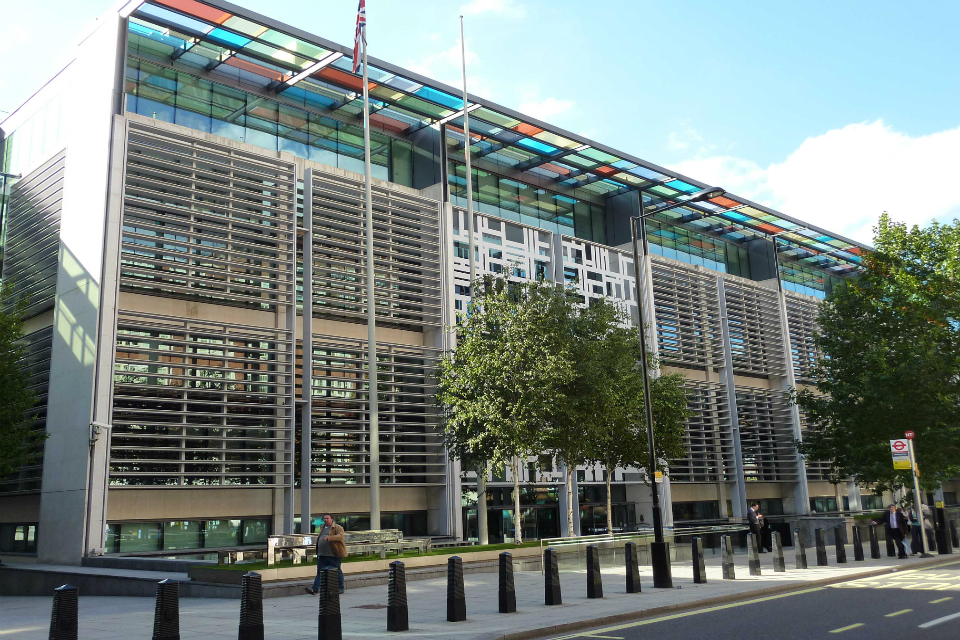New roads, railway lines and offshore windfarms could be delivered more quickly and easily, powering economic growth, according to a new independent report published today (Monday, 28 October).
The Review of Legal Challenges to Nationally Significant Infrastructure Projects, by leading planning barrister Lord Charles Banner KC, aims to reduce delays to Nationally Significant Infrastructure Projects and get Britain building, with ten recommendations set out for government on how to reduce barriers to development and resolve challenges more effectively.
These include options to streamline the judicial review process, reduce the amount of time it takes for legal challenges against these projects to move through the courts, and improve the way data on case progress is published.
These major projects, which can include harbours, power stations and waste water management facilities, are often held up by judicial review challenges, sometimes setting them back years in delays, increasing the costs significantly.
The Government will carefully review recommendations and the responses received in the call for evidence before publishing a response with a focus on ensuring there is a balance between the critical need for projects and maintaining the public’s right to challenge government decisions.
Alongside the publication of the review, the Ministry of Justice, has published a call for evidence seeking views on Lord Banner’s recommendations.
Housing and Planning Minister Matthew Pennycook said:
Building new and improved national infrastructure is essential to delivering the government’s economic growth and clean power missions and we must have planning system fit to deliver it.
With demands on the consenting process having changed considerably over recent years, I’m grateful to Lord Banner for reviewing how we might speed up the delivery of major infrastructure projects.
The government will carefully review his recommendations and consider further proposals before determining how we will further improve the Nationally Significant Infrastructure Projects regime.
Nationally Significant Infrastructure Projects are major infrastructure projects within the categories of energy, transport, water, wastewater, and waste.
The publication of this review comes as the government continues to focus on its commitment to break down barriers to building and deliver the investment, growth and 1.5 million homes that the country needs. This includes a consultation on changes to the National Planning Policy Framework to fix the foundations of the housing and planning system, new mandatory housing targets for councils to ensure homes are built where they are most needed and the forthcoming Planning and Infrastructure Bill, which will turbocharge housebuilding and accelerate the delivery of major infrastructure projects.
ENDS
Notes to editors:
A summary of the ten recommendations in the report include:
- The cost caps, which limit the legal costs the losing party must pay the winning party in certain judicial review claims, should not be amended.
- The current rules on ‘standing’ – i.e. who may bring a judicial review – should not be amended.
- There should be fewer ‘bites of the cherry’ for claimants seeking permission to bring a judicial review.
- The option of raising the permission threshold for a judicial review of a Development Consent Order (DCO) decision requires further consideration.
- The option of introducing an NSIP ticket, authorising a small pool of judges to hear DCO judicial reviews, requires further consideration.
- DCO Judicial Reviews should be designated as significant planning court claims, which would ensure these cases are dealt with promptly by the Planning Court, in line with target timescales set out in Civil Procedure Rules
- Case management conferences should be introduced for DCO judicial reviews, requiring parties to come together at an early stage to consider how best to approach these claims.
- Target timescales should be introduced for DCO judicial reviews in the Court of Appeal.
- Target timescales should be introduced for DCO judicial reviews in the Supreme Court.
-
The Planning Court and the Court of Appeal should regularly publish data on key performance indicators such as the average length of time taken for DCO judicial reviews to progress through the courts.
- The call for evidence will run for nine weeks and can be accessed here.
- Lord Banner is a leading expert in planning and environmental regulation and was appointed by the previous government to conduct an independent review into the legal challenges causing delays to Nationally Significant Infrastructure Projects.

